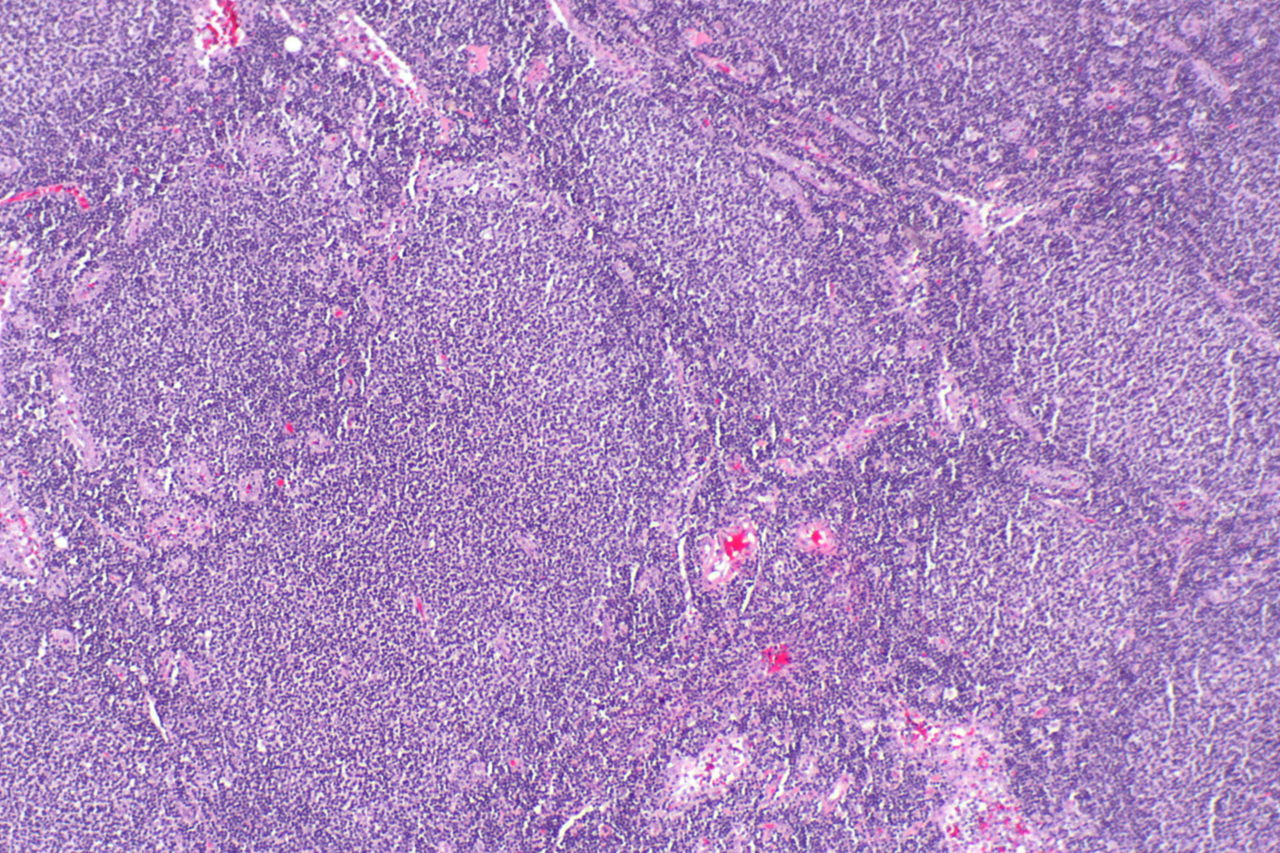SMARCA4, which normally functions as a tumor suppressor, is one of the most commonly mutated genes in human cancers, including roughly 30% of germinal center (GC)-derived Burkitt lymphomas. Germinal centers are temporarily formed zones where B cells expand, but the role of SMARCA4 in promoting lymphoma development is unclear.
To provide further insights, researchers led by Michael Green, Ph.D., examined the normal role of SMARCA4in GC B cells and how altering its function via mutation contributes to lymphoma. When functioning properly, SMARCA4 drives gene programs that allow B cells to exit the GC reaction and terminally differentiate. However, when this process is disrupted by mutation or other loss of SMARCA4 function, B cells tend to “recycle” themselves into the highly proliferative GC dark zone. When paired with over-expression of the Myc oncogene, this bias toward dark zone recycling promotes Burkitt lymphoma development. These findings also demonstrate the potential susceptibility of this cancer type to targeted therapies.


